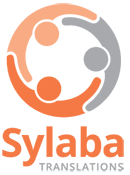Translating medical content can be challenging due to the industry’s complex language and specialized terminology. In a multicultural country such as Australia or the United States, a hospital can expect to have patients who speak different languages.
The patient needs to understand:
- What the diagnosis is
- Which medical procedures they are consenting to,
- What medication they will be taking, and
- The possible side effects.
1. Understanding the Terminology for Medical Industry
Tip #1:
Tip #2:
2. Making it understandable to the target audience
Tip #1: Use Plain Language
Tip #2: Find someone who is not a medical professional and let them read the text
3. Being aware of cultural differences (especially when it comes to sensitive topics)
Tip #1
4. Paying attention to formatting
Tip #1
Tip #2

Tip #3
Medical Translation Services
Medical translation services are specialised translation services that focus on translating medical and healthcare-related documents and content from one language to another. These services are crucial in the healthcare industry to ensure accurate and effective communication among healthcare professionals, patients, and researchers across different linguistic backgrounds. Here are some key aspects of medical translation services:
- Documents and Content: Medical translation services can translate a wide range of medical documents and content, including patient records, medical reports, research papers, pharmaceutical documentation, medical device manuals, clinical trial documents, and more.
- Specialized Expertise: Medical translators are typically professionals with expertise in both the source and target languages, as well as a deep understanding of medical terminology, procedures, and regulations. They may have backgrounds in medicine, pharmacology, or related fields.
- Accuracy and Precision: Accuracy is paramount in medical translation, as errors can have serious consequences. Translators must ensure that medical terminology, drug names, dosages, and other critical information are translated correctly.
- Regulatory Compliance: Medical translation often involves compliance with regulatory standards and guidelines, such as the requirements of the Food and Drug Administration (FDA) in the United States or the European Medicines Agency (EMA) in Europe. Translators must be aware of these regulations and ensure that translations meet the necessary standards.
- Confidentiality: Medical documents often contain sensitive and confidential information. Medical translation services should have strict confidentiality protocols in place to protect patient privacy and maintain data security.
- Cultural Sensitivity: Medical translation involves not only linguistic accuracy but also cultural sensitivity. Healthcare practices and patient expectations can vary significantly between cultures, so translators must take cultural nuances into account.
- Interpretation Services: In addition to written translation, medical translation services may also offer interpretation services for medical appointments, conferences, and meetings where language barriers need to be overcome in real-time.
- Multilingual Support: Medical translation services can handle translations between multiple languages, depending on the needs of healthcare providers and organizations.
- Machine Translation and Technology: Some medical translation services may utilize machine translation tools and technology to assist with the translation process. However, human expertise is typically required to ensure the highest level of accuracy.
- Certification: In some cases, medical translations may need to be certified or notarized to be legally recognized. Medical translation services can provide the necessary certification when required.
When seeking medical translation services, it’s essential to choose a reputable provider with a track record of accuracy and adherence to industry standards. Additionally, it’s crucial to communicate your specific requirements and expectations clearly to ensure that the translation meets your needs
Related Posts

Get a quote today
"*" indicates required fields
Subscribe today to receive the latest insights and updates from Sylaba Translations









